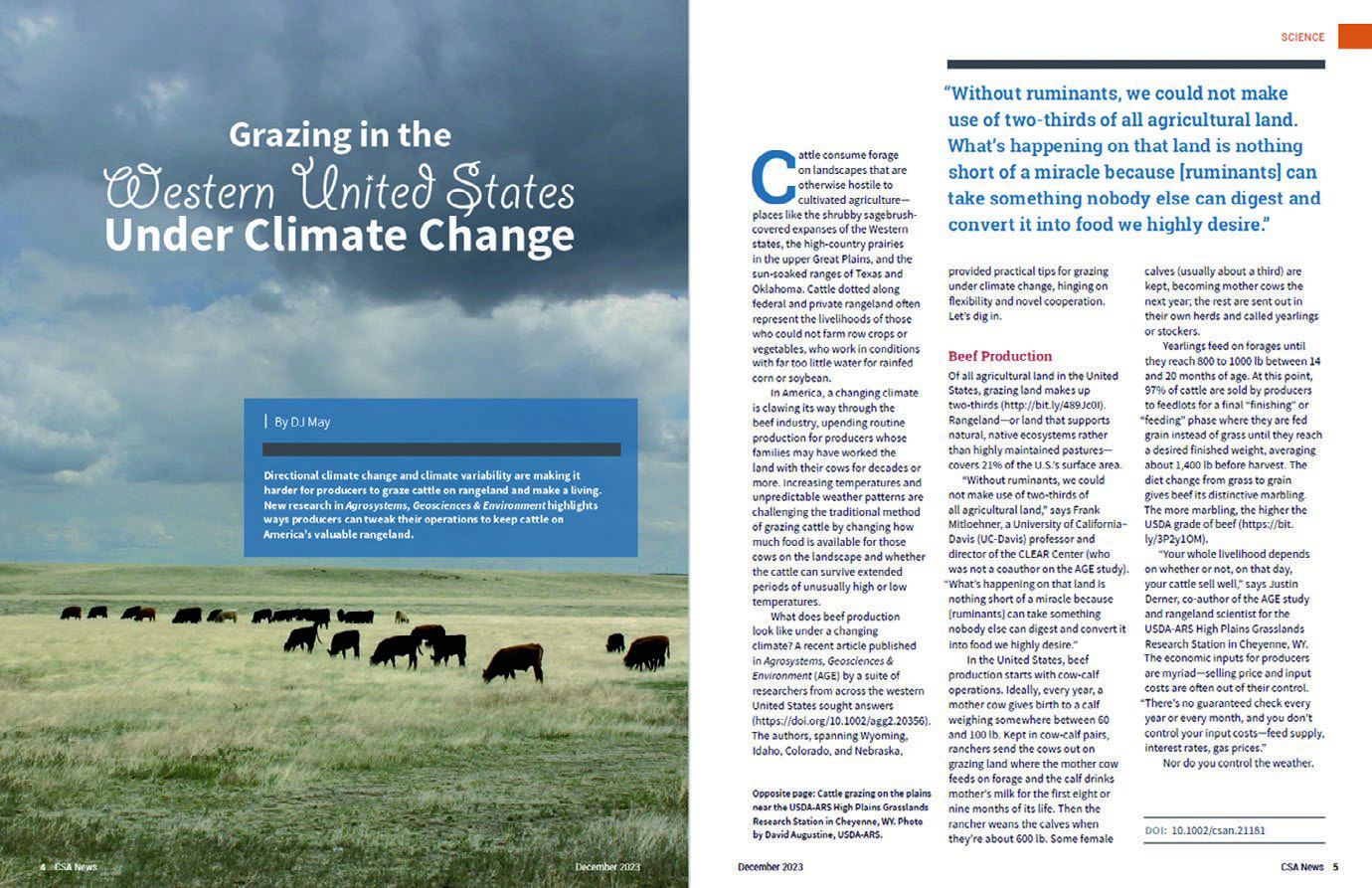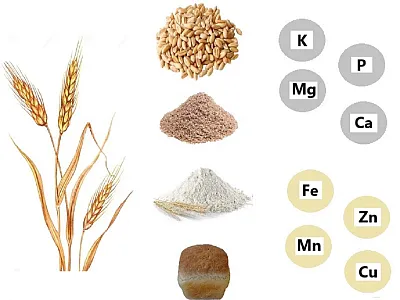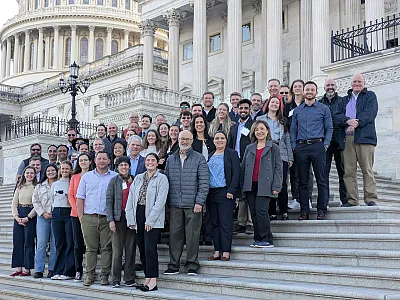Don’t Blame Cattle for Carbon Cycle Disruption

Dear Editor: I am prompted to write because of two recent articles: “The Supply and Demand of Green Eating” by Kristen Coyne (November 2023; https://doi.org/10.1002/csan.21149) and “Grazing in the Western United States Under Climate Change” by DJ May (December 2023; https://doi.org/10.1002/csan.21181). The very important thing to remember about the increase in greenhouse gases over the last 150 + years is that it is because we have upset the carbon cycle. Agriculture is a small and not insignificant part of greenhouse gas emissions, but even when the potency of methane is taken into account, it is not the main source of the problem (https://bit.ly/3SAJbNJ).
We have upset the carbon cycle by cutting down forests and oxygenating soil organisms through mechanized agriculture, which in turn increases the rate of organic matter decomposition. The deforestation also warms the soil with the same effect. Both of these have increased the release of oldish (hundreds to thousands of years old) carbon back to the atmosphere. Don’t blame cattle, however, because they are eating current carbon, belching current carbon, and producing meat, milk, and manure with current (a few years old) carbon. Cattle have not upset the carbon cycle because the greenhouse gas is recycled, i.e., no net change. If you consider the use of mechanized agriculture and forestry, the amount of fossil fuel use is small (https://bit.ly/4biBnYb).
The much more important change in the carbon cycle over the last 150 years is the release of ancient carbon to the atmosphere by combustion of fossil fuels. According to the University of Calgary’s Energy Education, Oil Formation page, 70% of the petroleum is 66 to 252 million years old and 20% is 65 million years old with the remaining 10% being 251 to 541 million years old (https://bit.ly/3vX3rAg).
Note that this carbon had been in the atmosphere in ancient times. When we now use it for transportation, heating, production of electricity, etc., we are upsetting the carbon cycle because it is not being created at the same rate that we are burning it. I hate to see meat and dairy production, or even agriculture, be demonized when the real culprit is the use of ancient (hence “fossil”) fuels.
—Kathryn Sasowsky, CPSS, PG (PA), Sasowsky Earth Science Consultants, Ltd., Akron, OH
Text © . The authors. CC BY-NC-ND 4.0. Except where otherwise noted, images are subject to copyright. Any reuse without express permission from the copyright owner is prohibited.








